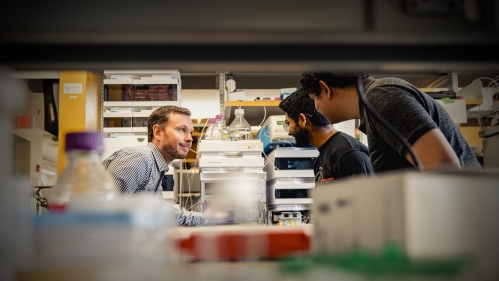
Academics
Our Biomedical Engineering program combines classroom and laboratory learning with research and many opportunities for innovative, practical training.
Innovative, Practical Training
The Department of Biomedical Engineering at Rutgers offers unparalleled access to leaders and innovators in the field as well as to resources, including research funding and internship opportunities. State-of-the-art facilities encourage interdisciplinary collaboration in genomics, tissue engineering, advanced microscopy, biomedical optics, microfabrication, animal study, and more.
Undergraduate
The goal of the Rutgers Biomedical Engineering Department is to educate its students with a broad base in core biomedical engineering and provide depth in the frontier areas of biomedical engineering profession through exposure to key areas of specialization. The entire spectrum of these application areas is organized into three distinct “tracks.” Every student is urged to carefully select one of the three tracks. Based on the choice of the track, the student can then design the appropriate technical electives, life-science electives, and departmental electives supportive of the track at junior and senior levels.
Tracks include:
• Biomedical Computing, Imaging & Instrumentation (BCII)
• Biomechanics and Rehabilitation Engineering (BRE)
• Tissue Engineering and Molecular Bioengineering (TEMB)

Graduate
The Biomedical Engineering graduate program provides outstanding graduate level training in six critical areas of biomedical engineering and technology including:
• Biomaterials and Tissue Engineering
• Biomechanics and Rehabilitation Engineering
• Computational Bioengineering and Biomedical Imaging
• Molecular, Cellular, and Nanosystems Bioengineering
• Neuroengineering
• Physiological Systems and BioInstrumentation
Thesis projects may straddle multiple areas given that these areas are broadly defined and overlapping.
We offer degrees that reflect individual student goals from career advancement to research intensive.